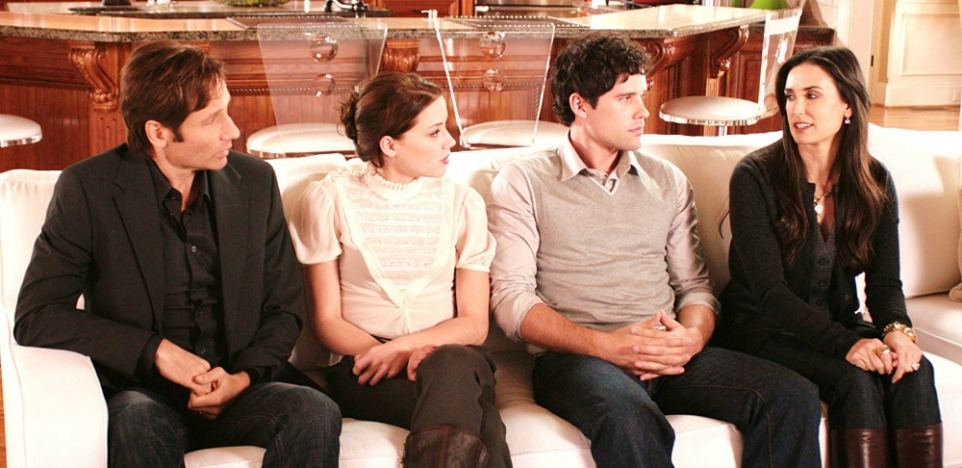British economist Paul Elkins writes of consumerism: "The possession and use of an increasing number and variety of goods and services is the principle aspiration and the surest personal route to personal happiness, social status, and national success." The chief means of spurring the public to buy more is marketing. From an early age, the average "consumer" hears hundreds of ads every day. In addition to direct advertising, product placement (intentionally showing products in television programs or movies so they are linked with characters) is a growing trend. In "word of mouth" marketing, people who are acting as unpaid "brand agents" push products on unsuspecting friends or acquaintances. U.S. businesses spent $1.5 billion on this kind of marketing in 2008 and the figure is expected to grow to $1.9 billion by 2010.
Steve Jones (David Duchovny) and his wife Kate (Demi Moore) move into an upscale gated community with their daughter Jenn (Amber Heard) and son Mick (Ben Hollingsworth). They are a very attractive family who seem to have an almost magical ability to be up on the latest product, whether it is a big screen TV, perfume, sneakers, or sports car. Their next-door neighbors, Larry (Gary Cole) and Summer (Glenne Headly) swoon after the perfection of their home, possessions, and clothes. At high school, Jenn and Mick have the same effect on their peers — dazzling them with products they recommend.
Soon the whole neighborhood is comparing and contrasting themselves with this thriving new family on the block. Sadly, Larry and Summer go overboard in trying to keep up with the Joneses, plunging into debt and financial catastrophe. Unbeknownst to their fans, the popular outsiders square off with problems of their own that have nothing to do with possessions.
The plot gimmick which we have tried very hard not to reveal works for a while and is very clever and feasible — demonstrating how far corporations are willing to go to trick people into purchasing more than they need or even desire. But the predictable melodrama that overtakes the drama near the end is not very credible. Nonetheless, we're willing to overlook this flaw and to support writer and director Derrick Borte's critique of consumerism and all the bogus virtues that are connected with it.
Special features include deleted scenes.
